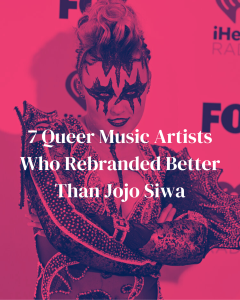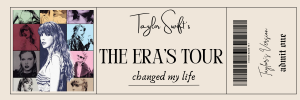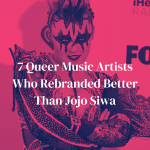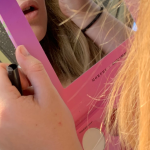By Em Readman
The complexities of cancel culture in the Australian music scene
You all know what getting cancelled is. You’ve probably seen it on one of your social media feeds every so often. If you don’t, cancelling is basically a micro-apocalypse of someone’s previously positive rapport. A famous figure does something reprehensible or is accused of bad behaviour, their audience latches onto that event, it becomes a dumpster fire of memes, accusations, proposed #boycotts, and usually ends with the celebrity getting out of the public eye for a while. It happens a lot in Australian music, so I’ll catch you up on some of the most noteworthy cancels of the last year.
Perth band Good Doogs got cancelled over sexual abuse allegations. Sand Tunes Music Festival got in hot water for Fyre-Festival-Esque venue changes and cancellations. Sticky Fingers got cancelled after Dylan Frost’s acts of drunken violence, then uncancelled, then cancelled again after whatever the hell Paddy Cornwall’s Instagram story was about (look it up, it’s great.) Lorde and Kate Miller-Heidke had boycotts called against them after decisions to have performances in Israel. The LNP tried to cancel Triple J after their decision to change the date of the Hottest 100, and don’t even ask about what is going on with Camp Cope and the Smith Street Band. Basically, there’s a lot of Red Queens out there chopping off people’s heads at even the smell of a rose being painted red. It’s anarchy.
So, what’s the problem with this? Artists are beholden to the code of conduct their fans expect of them, and if they do something wrong then they’ll lose some or all of their support. Fairs fair, right? Well, it’s not that simple. I agree that when it comes to criminal investigations, allegations should be taken seriously and people who commit crimes should face the consequences. There’s no question that abusers deserve justice and victims deserve closure. I also believe in accountability and the power fans have in the success of the artists they listen to. What I don’t believe in is shutting down a dialogue surrounding an issue by screaming “CANCELLED” all over social media. When someone gets called out, they’re allowed to respond and explain.
Take Kate Miller-Heidke and Eurovision. Roger Waters of Pink Floyd fame, among others, called out the performers for performing at Eurovision in Tel Aviv. I would suggest conducting your own research on the conflict, as this article is about cancel culture, not complex politics. A lot of people joined the uproar, making comments about Kate deciding to remain in the competition, her music and her politics. Her statement calmly explained her decisions, addressing the “twitter extremism” that followed. This situation could have been handled differently in a way that opened up a conversation and didn’t personally attack Kate. However, as cancel culture usually devolves, that dialogue was destroyed and lots of finger-pointing ensued.
But what about when the waters are a bit murkier? Georgia McDonald, from Camp Cope and Wil Wagner, from the Smith Street Band, used to date. Their breakup was messy, and involved accusations of both sides of emotional abuse, releases of private emails and, for some reason, a Reddit AMA. The Smith Street Band had to cancel their tour due to support acts dropping out and the heat that they were experiencing from the public and the music press. The tides then turned on Georgia, being told she was spoiled and exaggerating the situation. Then, Wil posted an open letter, explaining that Georgia had painted him in a bad light with doctored evidence. After that Georgia responded with further accusations, and Wil fired back.
Meanwhile, the other band members of the respective bands were left in a limbo, their fanbases starting to drift off in the drama.
For me, I believe there is no right or wrong in the above situation and could have played out privately. But, it played out publicly and thus fell into the hands of cancel culture. Jaya Saxena, a writer for Billboard says that fans care about the social impact of the bands they listen to. Speaking of a band they once listened to who’s lead singer was charged with sexual assault, Saxena says, “…if I’m being honest, I was worried about what enjoying their music might say about me.” No one wants to be seen as the music listener who ignores serious misconduct. I know I don’t. So, in the crossfire, lots of diehard Camp Cope and Smith Street Band fans stepped away from the bands, because the risk of being perceived as insensitive and permitting the bad behaviour is too high. This incident of cancel culture was an example of a band trying to use cancel culture against another band, which didn’t work out well for either of them. Cancel culture can come for anyone, you can’t put someone up on the guillotine without the risk of ending up there yourself.
Ultimately, the power of public opinion takes precedence. The listeners are the kings and queens of this industry. We want the Australian music scene to be safe, inclusive and high quality, without having to axe people who threaten those things. But we do cut those who are sabotaging the industry, because we don’t stand for misconduct here. It doesn’t matter if you’re playing at your local or you topped the Hottest 100, you have a standard to uphold. As music listeners, we hold the crown, we call the shots.
Although, some people like to call the shots too much. Cancel culture is hot news, it shatters what we thought we knew about our favourite artists. In every annals of society, there are always people who live for gossip. The ones who crack open a cold one, corner you at the house party and talk your ear off about each perceived slight they’ve heard about. They love cancel culture, they’ll seek it out because having someone to attack always makes for a good story. This is an overseas example, but regardless a relevant one. I remember a little while ago, people we’re trying to cancel Halsey because she was publicly speaking about her experience of racism. People said she was out of touch, ridiculous, POC-baiting and “the whitest person alive who produces the whitest music alive.” But, there’s no ‘tea’ there, because Halsey has a place in the dialogue about racism. Because she’s biracial. Yes, I agree she’s definitely got the privilege of being white-passing, but she’s biracial nonetheless.
This is where cancel culture goes the other way, cancelling and causing drama because it’s exciting to talk about isn’t productive either. It just makes for petty conversations in twitter feeds. We can safely say that cancelling without information, cancelling without opening up a dialogue, using cancelling as a weapon and cancelling for the sake of having something to cancel is ridiculous. Cancel culture has become toxic, but it’s principles are strong and have value in the broader conversation about our music scene.
I think it can be better. I think we can use cancelling as a powerful tool to think critically about the actions of our favourite musicians. We all agree there is a standard and a code of conduct that everyone, and especially people with an audience, must uphold; when they break that we need to consider whether they deserve our support.
I think that conversations controversial decisions in music can be had productively, instead of through a twitter war. When hearing about a controversy, be it through news, word of mouth or a meme group of your choosing, think critically about your response. Listen to those accusing and those accused, think rationally and cancel where cancelling is due. Sometimes it is, sometimes it isn’t. It’s easy to get sucked into the rip that is the bandwagon, I know. However, getting the information before you make your judgment helps to quell unneeded internet rage. Lashing out like you’re the Red Queen of Wonderland doesn’t contribute to a healthy discussion about conduct in music, it just makes for a lot of comment fights. Cancelling isn’t cancelled, but it is cautioned.







